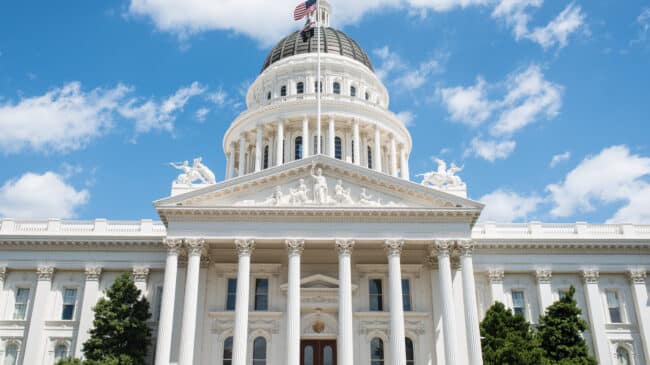Summary
California currently taxes managed health care insurance providers for their plans, but that tax is due to expire in 2026. California Proposition 35 would make that tax permanent. Currently, the tax is $182.50 for each monthly Medi-Cal enrollee.
Fiscal Impact
The state’s fiscal analysis predicts Prop. 35 would, in the short run, collect between $2 billion and $5 billion in taxes on health insurance plans. Any other fiscal effects are uncertain.
Proponents’ Arguments
Proponents of Prop. 35 argue it “will secure ongoing revenue by extending an existing tax on health insurance companies—without raising taxes on individuals—and dedicating these funds to protect and expand access to care for all Californians. And it will prevent the state from redirecting these revenues for non-health care purposes.”
Donaldo Hernandez, medical doctor and immediate past president of the California Medical Association, said, “California’s inadequate health care funding means at least 40 percent of the state’s residents who rely on Medi-Cal must wait months to see primary care doctors […] and other specialists.” And “Prop. 35 represents the most important investment in California’s health care in our state’s history.”
Opponents’ Arguments
There is no organized opposition to Prop. 35. Governor Newsom has opposed the initiative arguing it would “hamstring” future legislators’ and governors’ ability to balance the budget.
Discussion
Prop. 35 was put on the ballot by health care unions to force the state to spend more on Medi-Cal. The tax on health insurance has been around for years, but in tough budget times, the state often spends money on things other than healthcare.
This year California was in a pincer on Medi-Cal funding. The legislature passed laws expanding the number of people eligible for Medi-Cal, driving up service demand. At the same time, the state faced a massive budget deficit and had to cut $16 billion in spending and dip into the state’s rainy day reserves. So, Governor Newsom backed out of a deal he had made with health care unions to raise their wages because that would have made the budget gap bigger. In response, the unions put Prop. 35 on the ballot to force the state to make the tax on health insurance plans permanent and to spend that money on health care.
On the one hand, the governor is correct about Prop. 35 making it harder to balance budgets in the future by tying one source of revenue to one type of spending. On the other hand, the state only gets into budget crises by overspending, so it’s a time-honored tradition in California to tie certain funds to certain programs, as voters have done with education spending, mental health spending, first responders, and others.

